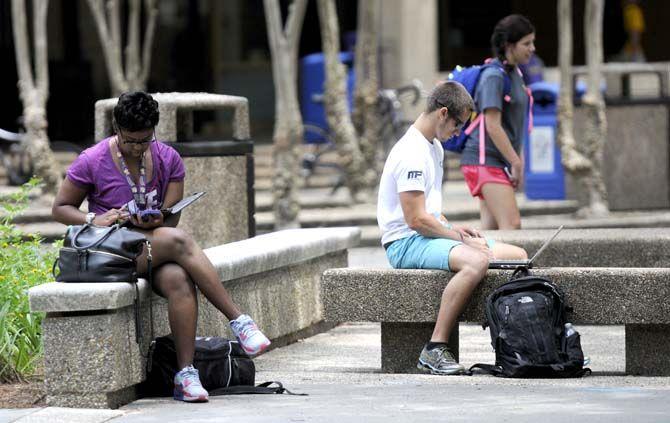BATON ROUGE, La. (AP) — Awards from Louisiana’s free college tuition program known as TOPS have gone disproportionately to white students over the past decade, and on average to students from wealthier families.
Those are among details included in a new report released Wednesday to the Board of Regents that provides the first in-depth look at the demographics and household incomes of recipients in the tuition aid program, which is among the most generous in the nation.
Lawmakers sought the more detailed information in a bill by Sen. Dale Erdey, R-Livingston, as they worry about the skyrocketing price tag of the program, which costs $250 million in the current budget year and is projected to grow only more expensive.
The report shows that between 2003 and 2014, 79 percent of the TOPS recipients were white and 58 percent were female. That’s not representative of Louisiana’s population, which is 64 percent white and 51 percent female.
The average household income for students who received the free college aid during the same time period ranged from $70,000 to $99,000 — far above Louisiana’s median household income of $44,164.
According to the data, TOPS students graduate at higher rates than those who attend Louisiana colleges without the award. One-third of students who received free tuition since 2003 lost the aid because they didn’t maintain the minimum academic criteria required.
Regents members didn’t spend much time discussing the demographics of the report, instead simply defending the program and its price tag. Board member Richard Lipsey said the annual cost is a fraction of the state’s $25 billion budget.
“This $200 million is infinitesimal and look at the good it is doing in training our students. People need to wake up to that fact, that this is just a hair on an elephant’s behind,” Lipsey said.
The program, formally known as the Taylor Opportunity Program for Students, has been around since 1998. It provides scholarships to Louisiana high school students who complete a certain curriculum and who meet grade point average and college entrance test score requirements: at least a 2.5 GPA and a 20 on the ACT.
The basic TOPS award covers tuition at any state public university, regardless of a student’s need or ability to pay. Higher achieving students can earn extra payments.
Despite concerns about cost, TOPS is so popular with Louisiana parents and middle-class voters that efforts to make changes have repeatedly stalled in the Legislature. Supporters say the program has boosted college enrollment and degrees in a state historically behind in educational attainment.
But critics worry that if they don’t add greater limitations to the tuition aid, they won’t be able to afford the program or they’ll have to cut other aid to public colleges to pay for TOPS scholarships.
Louisiana has spent $1.9 billion on the program since it started.
The price tag of TOPS grows each time colleges raise their tuition price for students, and colleges have been increasing tuition regularly as Gov. Bobby Jindal and lawmakers have stripped more than $700 million in state financing from higher education since 2008.
Study groups have repeatedly suggested changes to the program structure. Jindal opposes such ideas, and they’ve failed to win legislative passage.
Study shows TOPS free college tuition aid goes mostly to white students
December 11, 2014
Students sit on a shaded bench between classes Monday, August 25, 2014 in the Quad.
More to Discover








